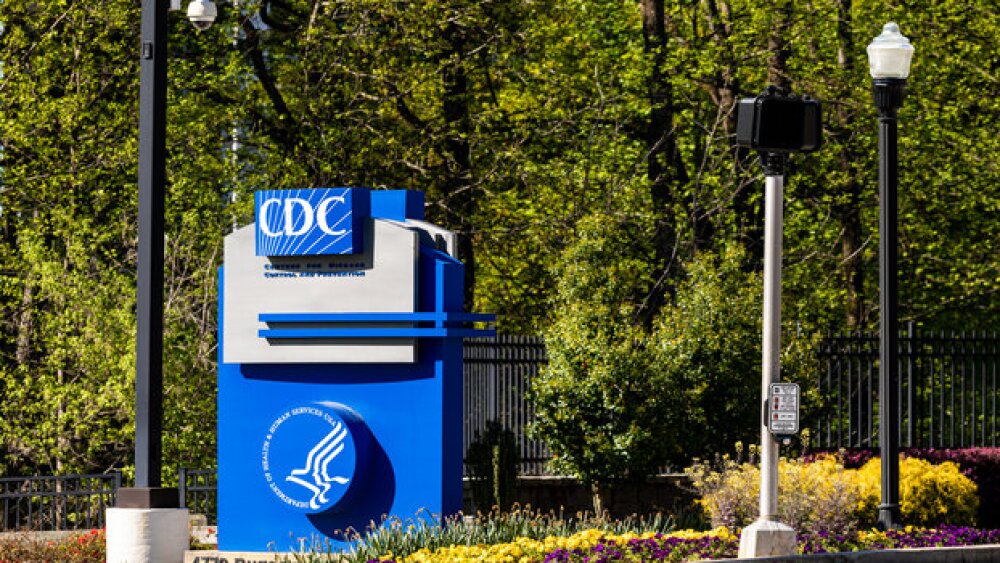On Wednesday, the CDC’s Advisory Committee on Immunization Practices voted to recommend Valneva’s chikungunya virus vaccine Ixchiq for certain high-risk patient groups.
Pictured: CDC signage at its headquarters in Georgia/iStock, csraphotography
The CDC’s Advisory Committee on Immunization Practices on Wednesday recommended that specific groups of high-risk patients be given access to Valneva’s chikungunya virus vaccine Ixchiq, the company announced Thursday.
The ACIP, which consists of medical and public health experts who craft recommendations for the use of vaccines in the U.S., singled out researchers who work with the virus as well as travelers bound for countries or territories with an ongoing outbreak.
Select high-risk populations, specifically those aged 65 years and above with underlying health conditions, traveling to places with known chikungunya flares in the last five years should also be vaccinated, according to the ACIP. The recommendation extends to people who will stay in areas of high chikungunya activity for at least six months.
The ACIP recommendation will be forwarded to the director of the CDC and the Department of Health and Human Services for review and approval, according to Valneva.
“We embrace the ACIP endorsement, marking Ixchiq as the only approved and recommended vaccine for the target population. We will continue collaborating with regulatory authorities worldwide to increase the accessibility of Ixchiq across regions,” Valneva CMO Juan Carlos Jaramillo said in a statement.
The chikungunya disease is a mosquito-borne illness characterized by fever and joint pain, but can also manifest as headaches, muscle pain or rashes. The majority of chikungunya cases are mild and most patients start feeling better within a week, though joint pain can be “severe and disabling” in some cases and persist for months, according to the CDC’s website. Deaths are rare.
There are currently no approved cures for chikungunya. Instead, patients are managed with fluids and over-the-counter pain medications and are advised to rest.
Chikungunya is not endemic in the U.S., which sees 100 to 200 cases annually, largely among travelers, according to a Wednesday presentation by Susan Hills at the ACIP meeting, lead of the CDC’s Chikungunya Vaccines Work Group.
To help limit case counts, the FDA in November 2023 approved Valneva’s Ixchiq as the first chikungunya vaccine in the U.S. Ixchiq can only be used to immunize adults aged 18 years and above who are at increased risk of infection by the mosquito-borne virus. Ixchiq was granted approval through the FDA’s accelerated pathway and had previously won the regulator’s Fast Track and Breakthrough Therapy designations.
Phase III data backing Ixchiq’s approval demonstrated that the vaccine can elicit a 98.9% seroprotection rate after 28 days. Protection was slightly lower at 98.6% in individuals aged 18 to 64 years but reached 100% in older adults 65 years old and above. In terms of safety, Ixchiq was generally well-tolerated but showed a higher rate of side effects versus placebo.
Tristan Manalac is an independent science writer based in Metro Manila, Philippines. Reach out to him on LinkedIn or email him at tristan@tristanmanalac.com or tristan.manalac@biospace.com.






